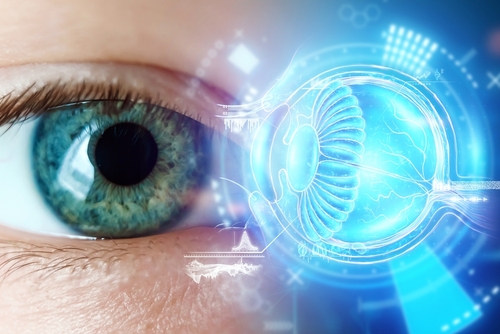
Keratoconus is a progressive eye condition that affects the cornea, the clear, dome-shaped front surface of the eye. The disease causes the round cornea to thin and bulge into a cone-like shape, leading to vision distortion and sensitivity to light and glare. Its onset usually starts during the late teens or early 20s and gradually worsens over time.
While keratoconus can be a challenging condition to live with, the good news is there are several treatment options available today. The type of treatment you'll need often depends on the severity of your symptoms and how quickly the condition is progressing.
Common Treatment Options for Keratoconus
The primary goal of treating keratoconus is to improve your vision and prevent further progression of the disease. In the early stages, glasses or soft contact lenses may help to correct the mild astigmatism caused by the condition. However, as keratoconus progresses and the cornea becomes more irregular and cone-shaped, glasses or regular contact lenses may no longer provide clear vision.
In such cases, specialty contact lenses may be required. These lenses are specially designed to fit over the irregularly shaped cornea and provide a clear, smooth surface to help focus light more effectively onto the retina. There are several types of specialty contact lenses, including rigid gas permeable lenses, hybrid lenses, and scleral lenses.
What are Specialty Contact Lenses?
Specialty contact lenses are custom-made devices designed to manage a variety of complex eye conditions, including keratoconus. These lenses are typically larger and more rigid than standard lenses, helping to mask corneal irregularities and provide a smooth, clear optical surface.
Rigid gas permeable (RGP) lenses, for instance, are hard lenses that maintain their shape on the eye, providing clear vision for people with keratoconus. Hybrid lenses, on the other hand, combine a hard center with a soft peripheral skirt, offering the clarity of RGPs with the comfort of soft lenses.
Scleral lenses are another type of specialty lens. They are large-diameter rigid lenses that vault over the entire corneal surface and rest on the white part of the eye, called the sclera. This design allows for a layer of tear fluid to exist between the back surface of the lens and the front surface of the cornea, providing exceptional comfort and visual acuity.
Choosing the Right Specialty Contact Lenses for Keratoconus
Choosing the right specialty contact lenses for keratoconus can significantly improve your quality of life. However, this decision should be made in consultation with an experienced eye care professional who understands your unique needs and circumstances.
Firstly, the severity of your keratoconus will largely dictate the type of lenses you need. If your keratoconus is mild, you might be able to achieve good vision with RGP or hybrid lenses. However, if your keratoconus is more advanced, scleral lenses may provide the best comfort and visual acuity.
Secondly, your lifestyle and personal preferences also play a role in the lens selection process. If you lead an active lifestyle, for example, scleral lenses might be a better option because they are less likely to dislodge from the eyes during physical activity.
Lastly, the cost and availability of these lenses can also influence your decision. While specialty lenses tend to be more expensive than regular contact lenses, many individuals with keratoconus find the improved vision and comfort worth the additional investment.
Benefits of Scleral Lenses
Scleral lenses have emerged as a popular choice for treating keratoconus, and for good reasons. These lenses offer several benefits, particularly for people with moderate to severe keratoconus.
One of the main advantages of scleral lenses is their ability to provide excellent visual acuity. Because these lenses vault over the irregular cornea and rest on the sclera, they create a smooth, regular optical surface, resulting in sharper, clearer vision.
Additionally, scleral lenses are known for their superior comfort. The large size of these lenses helps to keep them stable on the eye, minimizing the risk of lens dislodging and reducing corneal irritation. The reservoir of tear fluid trapped beneath the lens also provides continuous hydration, which can alleviate dry eye symptoms often associated with keratoconus.
Finally, scleral lenses are durable and long-lasting, often providing several years of use with proper care and handling. This makes them a cost-effective solution in the long run, despite their higher upfront cost.
Making the Right Choice for Your Vision
Choosing the right specialty contact lenses for keratoconus entails considering several factors, including the severity of your condition, your lifestyle, and your budget. It is a decision best made in consultation with an experienced eye doctor who can guide you through the process and help you find the best solution for your needs.
If you have keratoconus, visit In Focus Vision Center in our Piscataway, New Jersey office. Our team of professionals will determine the right specialty contact lenses based on your needs. Call (732) 313-2570 to schedule an appointment today.









